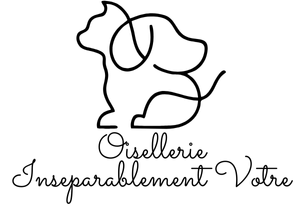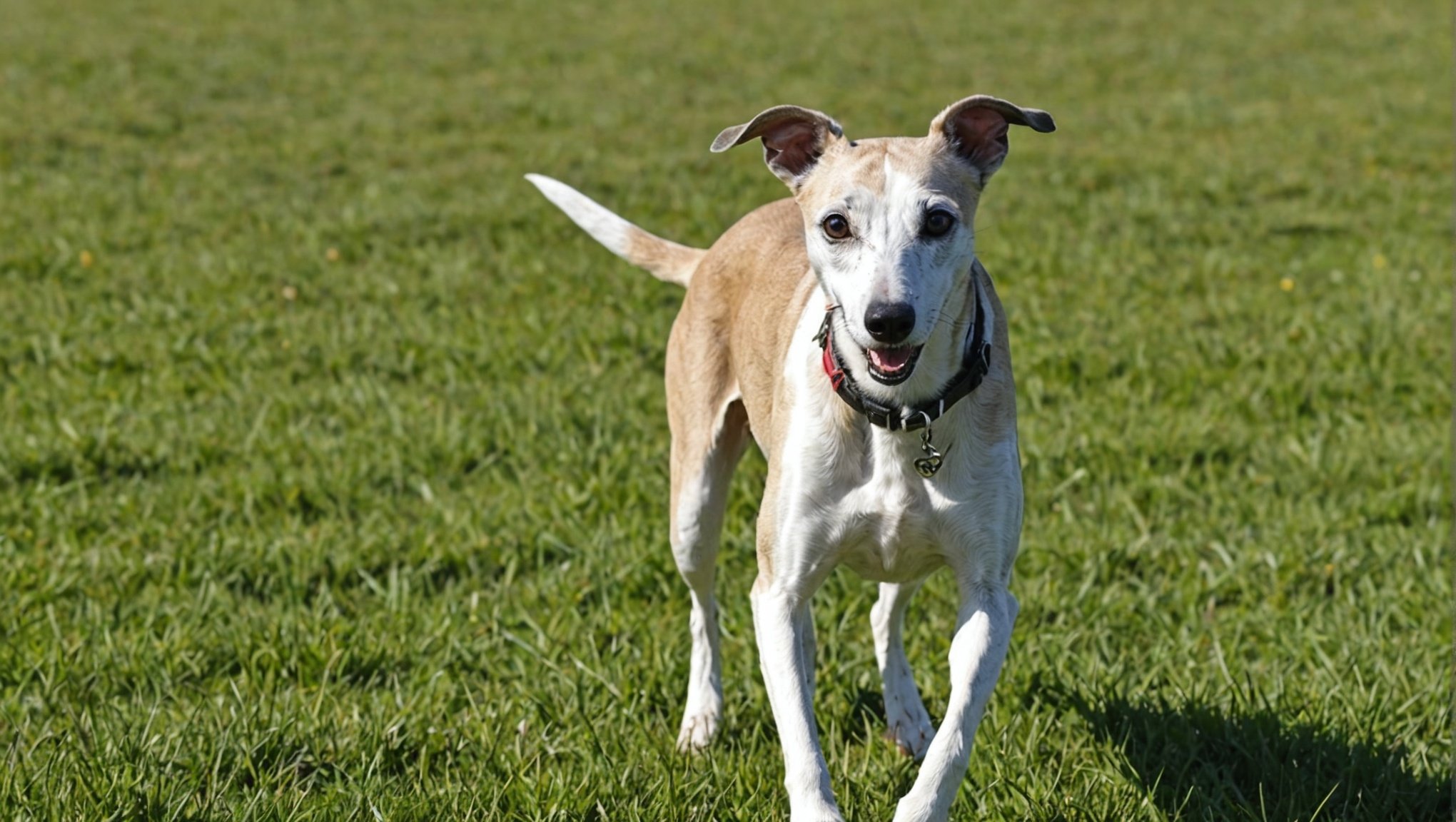Whippets are known for their speed and grace, but mastering recall can challenge even the most dedicated owners. In open English fields, distractions abound, making it vital to implement effective training strategies. This guide offers practical tips to enhance your whippet's recall, ensuring a safer, more enjoyable experience for both you and your furry friend. With patience and perseverance, you can transform your whippet into a reliable companion, ready to respond to your call amid the exciting wonders of the great outdoors.
Understanding Whippet Behavior and Recall Challenges
Understanding the unique Whippet behavior is crucial for successful training. Known for their agility and speed, Whippets have strong hunting instincts. These instincts can often lead them to chase after small animals, making recall in open fields particularly challenging. This breed's natural inclinations can sometimes overshadow traditional dog training basics.
Cela peut vous intéresser : Crafting a Customized Diet Plan for Your Diabetic Jack Russell Terrier: Essential Tips and Strategies
Whippets are sensitive and intelligent dogs, but their independence can be mistaken for stubbornness. To address these recall challenges, it's important to incorporate training techniques that cater to their specific needs. Here are some key points to consider:
- Instincts: Whippets have a strong prey drive, which can make them prone to distractions.
- Environment: Open fields present numerous stimuli that can interfere with recall.
- Consistency: Regular and positive reinforcement is essential for effective training.
Understanding these elements can significantly improve training outcomes. By recognizing the breed's tendencies, owners can tailor their approach to ensure a more responsive and well-trained Whippet. Emphasizing positive reinforcement and patience will lead to more reliable recall, even in challenging environments.
A voir aussi : Essential Insights: The Significance of Shell Health Monitoring in Hermann”s Tortoises
Essential Training Techniques for Recall
Understanding the nuances of recall training is vital for Whippet owners. This section will guide you through essential techniques that enhance your dog's responsiveness.
Whippets thrive on positive reinforcement. Start by selecting a quiet space free from distractions. Call your Whippet's name, followed by a clear command like "come." When they respond, immediately reward them with a treat or affection. This establishes a positive association.
Consistency is key in training methods. Set a regular schedule for practice sessions, gradually introducing more complex environments. Repeat commands and rewards consistently to reinforce learning.
Basic Steps for Recall Training
- Choose a Command: Use a simple, distinct word for recall.
- Start Small: Begin in a low-distraction environment.
- Reward Immediately: Use treats or praise as soon as they respond.
- Increase Difficulty: Gradually introduce more distractions.
Positive reinforcement is not just about treats. Use toys or playtime as alternative rewards. This flexibility keeps training engaging.
Incorporating these training methods can transform recall challenges into successes. By focusing on positive reinforcement and maintaining consistency, Whippet owners can foster a reliable recall, ensuring their pets are both safe and well-behaved.
Managing Distractions in Open Fields
Training Whippets in open environments requires understanding and strategy.
Identifying Common Distractions
In open fields, distractions abound, from small animals to people and other dogs. Whippets, with their acute senses, may find it challenging to maintain focus. Common distractions include:
- Birds and small mammals
- Other dogs and people
- Unfamiliar scents
Understanding these elements is crucial for effective field training.
Techniques for Desensitizing Whippets
Desensitization is key in managing training distractions. Start by exposing your Whippet to these elements in a controlled manner. Gradually increase the level of distraction as they become more comfortable. Use a bulleted list to track progress:
- Introduce mild distractions
- Gradually increase complexity
- Reward focus and calm behavior
This method helps Whippets acclimate to distractions without becoming overwhelmed.
Strategies for Maintaining Focus
Maintaining your Whippet's focus during training sessions requires consistency and creativity. Use high-value treats or favorite toys to redirect attention. Incorporate short, engaging exercises to keep their interest piqued. Regularly practice in varied environments to strengthen their ability to concentrate.
By employing these strategies, Whippet owners can effectively manage distractions and enhance their dog's responsiveness in open fields. This approach not only improves recall but also ensures a safer and more enjoyable experience for both owner and pet.
Recommended Tools and Commands for Recall Success
Enhancing recall with the right tools and commands.
Effective Training Tools
Utilizing the right training tools can significantly improve recall success in Whippets. Tools such as long leashes, clickers, and treat pouches are invaluable. A long leash allows your dog freedom while maintaining control, perfect for open fields. Clickers provide a consistent sound cue that aids in reinforcing positive behavior. A treat pouch ensures rewards are always at hand, facilitating immediate reinforcement.
Recommended Recall Commands
Choosing the right recall commands is crucial for effective training. Simple, distinct words like "come" or "here" work best. Consistency in using these commands helps your Whippet associate them with returning to you. Pairing commands with a clicker sound or a hand signal can further enhance understanding and response.
Tips for Using Tools Effectively
To maximize the benefits of dog training aids, practice regularly in varied environments. Start with low-distraction areas before moving to open fields. Always reward promptly to reinforce positive behavior. Here's a quick guide:
- Use a long leash for safety
- Employ a clicker for consistency
- Keep treats accessible with a pouch
By integrating these tools and commands into your training routine, you can foster a reliable recall, ensuring your Whippet responds swiftly and confidently, even amidst distractions.
Incorporating Play into Recall Training
Enhancing engagement through interactive methods.
Benefits of Play in Recall Training
Integrating play training into your Whippet's routine can significantly enhance recall skills. Play naturally increases engagement, making your dog more responsive to commands. It creates a positive association with training sessions, turning them into enjoyable experiences rather than mere tasks. This approach encourages your Whippet to participate actively, enhancing their learning and recall capabilities.
Interactive Games to Improve Recall Skills
Recall games are effective tools for maintaining your Whippet's interest. Games like "fetch and return" or "hide and seek" not only build recall skills but also satisfy their instinctual need for activity. These interactive games require your Whippet to return to you, reinforcing the recall command in a playful context.
- Fetch and Return: Throw a toy and command "come" when your Whippet retrieves it.
- Hide and Seek: Hide and call your Whippet to find you, rewarding them upon success.
Balancing Play and Discipline for Effective Training
While play training is beneficial, balancing it with discipline ensures effective learning. Set clear boundaries during games to prevent overexcitement. Use a mix of recall games and structured commands to maintain a balance between fun and training. This approach not only enhances recall but also fosters a well-behaved, happy Whippet.
Expert Insights and Success Stories
Exploring real-life experiences and professional guidance.
Interviews with Dog Trainers Specializing in Whippets
Gaining insight from expert advice can transform your approach to Whippet training. We spoke with several dog trainers who specialize in this breed. They emphasize the importance of understanding Whippet-specific behaviors and tailoring strategies accordingly. One trainer noted, "Patience and consistency are key. Whippets respond best to gentle, positive reinforcement."
Real-Life Success Stories from Whippet Owners
Hearing from fellow Whippet owners provides valuable training testimonials. Many have successfully overcome recall challenges by incorporating play and consistent commands. One owner shared, "Using a combination of fetch games and structured sessions, my Whippet now returns on command, even in open fields."
Lessons Learned from Training Experiences
Both experts and owners agree on crucial lessons learned through training experiences. Here are some takeaways:
- Consistency: Regular practice and routine build trust and reliability.
- Adaptability: Adjusting techniques to suit your Whippet's personality is essential.
- Positive Reinforcement: Rewards and praise encourage desired behavior.
These success stories and insights illustrate that with the right approach, Whippet owners can achieve remarkable recall results. By leveraging expert advice and real-life experiences, you can navigate training challenges with confidence.
Common Challenges and Solutions
Understanding the nuances of Whippet training can be challenging.
Typical Challenges in Recall Training
Training challenges with Whippets often stem from their independent nature and strong prey drive. Owners may find that their Whippet becomes distracted easily, especially in environments with numerous stimuli. This can make recall training particularly difficult, as the dog may not respond consistently to commands.
Solutions and Troubleshooting Tips
To address these training challenges, consider employing a structured, systematic approach. Start by ensuring your Whippet is familiar with basic commands in a controlled environment. Gradually introduce distractions to mimic real-world scenarios. A bulleted list of effective strategies includes:
- Use high-value treats to maintain focus
- Practice in varied environments to build adaptability
- Implement short, frequent training sessions to prevent fatigue
Importance of Patience and Persistence
Patience and persistence are crucial when overcoming training challenges. Whippet owners should be prepared for gradual progress and occasional setbacks. Consistent reinforcement and a calm demeanor can help build trust and reliability. As one trainer notes, "The key is to remain patient and persistent, as Whippets thrive with gentle, consistent guidance."
By acknowledging these training challenges and employing targeted solutions, Whippet owners can achieve successful recall, ensuring a well-behaved and responsive pet.
Visual Aids and Resources for Whippet Owners
Enhancing training with effective tools and community support.
Recommended Books and Online Resources
Utilizing training resources is essential for Whippet owners seeking to improve their dog's recall abilities. Several books and online platforms provide comprehensive dog training tips tailored to Whippets. Notable titles include "The Whippet Handbook" and "Whippet Training: The Complete Guide." These resources offer insights into breed-specific behaviors and effective training techniques.
Visual Aids to Support Recall Training Efforts
Incorporating visual aids can significantly enhance recall training. Diagrams illustrating command sequences or step-by-step photo guides can simplify complex processes for both the trainer and the dog. Consider using flashcards with visual cues or posters that outline training steps to reinforce learning.
Community Resources and Support for Whippet Owners
Engaging with community resources provides invaluable support for Whippet owners. Local dog training clubs often host workshops and classes, offering practical dog training tips and fostering a supportive environment. Online forums and social media groups dedicated to Whippet enthusiasts can also be excellent platforms for sharing experiences and strategies.
- Books: "The Whippet Handbook," "Whippet Training: The Complete Guide"
- Visual Aids: Flashcards, step-by-step photo guides
- Community: Local clubs, online forums
By leveraging these training resources and visual aids, Whippet owners can enhance their training efforts, ensuring their pets become well-behaved and responsive companions.











